Emboldened by his midterm election triumph, President Javier Milei is opening dialogue with political leaders to advance with a second wave of reforms, targeting the labour market, taxation system and, down the line, pensions.
Milei’s government reached last week’s legislative elections amid financial turbulence that has calmed after the win. It now faces the challenge of jumpstarting a stagnant economy and consolidating its political project.
‘Most reformist Congress’
Milei’s first step will be to negotiate his first Budget bill in two years in office with lawmakers after two consecutive rejections. Milei postponed it until December, when his position in Congress will be stronger.
Milei’s La Libertad Avanza caucus will expand but still fall short of a majority. Although the final count is pending, the government is expected to hold around 100 of 257 seats in the lower house and 19 of 72 in the Senate, as from December 10.
With their centre-right ally, the PRO party of former president Mauricio Macri, Milei and La Libertad Avanza could have a combined 107 seats in the new-look Chamber of Deputies. In the upper house, the caucus would be 24 seats out of 72.
Milei has happily proclaimed that the new Congress, which will sit for the first time on December 10, will be "the most reformist... in Argentina's history."
The President has called on governors and other political forces to open talks on his “second-generation reforms” in 2026.
This time, the abrasive right-winger – who in the past dismissed his opponents as "rats" and "traitors" – is showing signs of being more open to dialogue.
Lower taxes
Milei says there is a “sequence” for his reforms and simplifying Argentina's byzantine tax code is his top priority.
The 55-year-old economist has in the past branded taxes as "theft" and labelled those who stash their money into offshore accounts as "heroes" for managing to "escape the claws of the State."
Milei wants to bring more workers into the formal economy. To achieve that he proposes lowering employer payroll taxes, so that companies put workers on their books and hire new staff.
“We have a plan to eliminate 20 taxes, reduce rates and broaden the tax base so that evasion no longer makes sense,” he told the A24 news channel on the Monday following the election.
According to Milei, the new tax scheme will trigger an “expansion of the private sector” that will allow progress towards “labour modernisation.”
Loosen labour laws
Milei always wants to shake up Argentina's "anachronistic" labour code, which he says "is over 70 years old and not designed for today's world."
He argues that the current system is driving informality and wants to make it easier to hire and fire staff.
Unemployment in Argentina stands at 7.9 percent, while 40 percent of workers are informally employed.
A bill drafted by a Milei-aligned congresswoman proposes making working hours more flexible – up to 12 hours a day – and allowing a percentage of wages to be paid in non-monetary form, such as with food vouchers or coupons.
Milei also wants to end what he calls the "labour litigation industry" by introducing a fixed severance pay system.
The Labour Ministry has proposed negotiating collective wage agreements at company level rather than the current union-led talks, along with performance-based pay.
Milei says the proposals, which are being pushed by employers, would be a win-win for companies and employees alike.
But Argentina's famously combative unions have so far categorically rejected them.
Some of the proposals had been included in a massive 2023 mega-decree, but they were ultimately blocked by the courts following challenges from labour groups.
Pensions system shake-up
As part of his triptych of new reforms, the President has also floated a shake-up of the country's underfunded pension system, without giving details and making clear it would come last of the three.
Groups of pensioners have become a focal point of resistance to the government, staging weekly protests that are often met with police repression.
According to the IARAF think tank (Argentine Institute for Fiscal Analysis), pensions and retirement benefits will account for 46 percent of state spending in 2026.
So far, the government has not provided details of its proposal to reform the pension system.
Can he do it?
A more conciliatory Milei has repeated since Sunday that he is prepared to do deals with other parties to get legislation through Congress.
Martín Rapallini, head of the Argentine Industrial Union (Unión Industrial Argentina,
UIA), said “the entire business sector is convinced that structural reforms must be tackled, namely the tax reform and also labour modernisation.”
"The challenge facing the government is to build consensus," said Rappallini.
Economist Pablo Tigani warned however that Milei's electoral honeymoon could be short-lived.
"When they start cutting pensions and rights, coupled with falling wages and a recession, social protests could accelerate and even explode," he told AFP.
According to political analyst Carlos Fara, the reforms “are things Argentina needs, but they are not essential for people’s day-to-day lives.”
“The most important thing is the recovery of activity – and that’s still uncertain,” he told AFP.
– TIMES/AFP


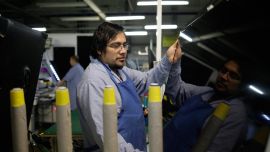


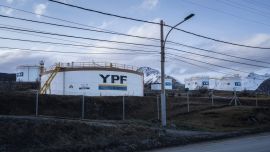
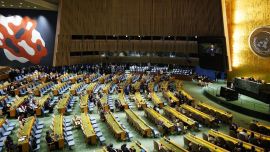






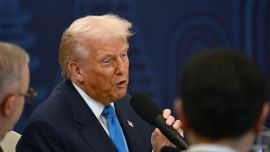


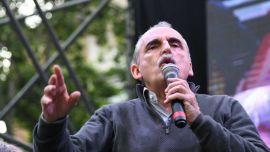
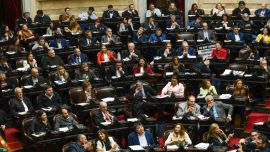

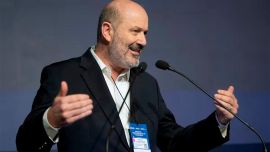
Comments